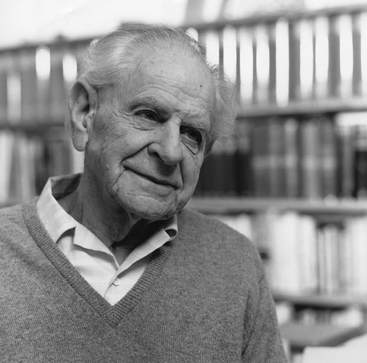 I once attended a presentation given by the Dalai Lama to an audience of scientists. In this presentation he relayed an anecdote of something that happened during the years when he trained to be a monk. He said that one of his teachers had stated that the moon shone with its own light. Sometime later, the Dalai Lama learned about the knowledge that the moon does not emit a light of its own, but rather that it reflects light from the sun. So he had to go back and correct his teacher. The Dalai Lama used this as a stepping stone to go on to suggest that our beliefs must be tempered by science. In other words, if we believe something and science produces solid evidence against it, then we must stop believing in it. To many people this would sound presumptuous. Why should science be the ultimate arbiter of truth? Isn’t science sometimes wrong? The answer is, of course, that science can be wrong, but as it turns out that is its strength. The reason that science is the best method we have to discover the truth about the behavior of matter and energy in the world that surrounds us is that, unlike other modalities of learning the truth, science can be wrong. Let me explain.  The above notion was put forward by the great philosopher of science Karl Popper. Popper was striving to find a way to tell science apart from other non-scientific disciplines, and he came up with a brilliant solution which he called the “criteria for demarcation”. Science makes testable claims. And because the claims of science can be tested, they can be proven to be wrong! This is also called the “falsifiability criterion”. While non-scientific disciplines produce theories that cannot be proven wrong and thus can never be tested or challenged, truly scientific disciplines propose theories that can be tested and unambiguously proven to be wrong if in fact they are. As an example, consider the case of polywater. This was a form of water that scientists were able to create inside small capillary tubes. This form of water had very different properties from regular water, and the international scientific community got really excited about its potential physical significance and applications. This went on until someone demonstrated that polywater was an unusual form of water because it was contaminated: it was dirty water! Thus the theory that polywater was a unique form of water was abandoned because it was challenged and proven false. Many scientific theories have met this fate, but this happened because they were testable. They could be proven to be false. In contrast consider Creationism. This discipline has been challenged and proven false many times. Its proponents, rather than concluding that creationism is false, have proceeded to change the theory and reformulate it is a new guise over and over. Creationism cannot be proven wrong because its proponents are not willing to stake the viability of the theory on specific testable claims. Therefore creationism is not a scientific discipline. On the other hand consider the theory of evolution. This theory has been put to test many times from many different directions, and it has survived those challenges. Today evolution has become a pillar of the biological sciences, and scientist have moved on from discussing whether evolution is true or not to applying the tenets of evolution to many areas of science that are producing discoveries that are making our lives better. The above also highlights another quality of science: it is self-correcting. In the short run scientists may make mistakes and propose incorrect hypotheses, but these hypotheses will be challenged and, if they are false, they will be proven to be so. Finally, I want to point out a real life practical application of the above knowledge that you can take away from having read this article. If you are ever witnessing a discussion where the arguments and counter arguments seem to go on forever and it is not clear who is right, just ask the following question: what evidence will convince you that you are wrong? If the parties involved in the discussion cannot unambiguously answer this question and commit themselves to changing their opinion based on whether such evidence is produced, then what you are witnessing is not a scientific discussion. This is not to say it is not an important discussion, but it does mean it will never be resolved based on evidence and facts. The photograph of the Dalai Lama was taken by Christopher and is used under a Creative Commons license. The photograph of Karl Popper by Lucinda Douglas-Menzies is in the public domain.
2 Comments
Sherry
10/15/2020 10:27:51 am
Thank you. In 2020 with regard to COVID-19 I have explained to people repeatedly that scientific knowledge is not set in stone; it changes, especially when scientists are studying something about which little was previously known. But what does not change is human nature. People still want certainty, and this is why they disregard science.
Reply
Rolando Garcia
10/16/2020 07:52:24 pm
Thanks for your comment, Sherry. Science can produce descriptions of reality accurate enough to yield many applications and be considered for all practical purposes "facts" at least at a given level of detail. But in emerging scientific fields such as COVID-19 the science is much more mutable and this indeed frustrates many people.
Reply
Your comment will be posted after it is approved.
Leave a Reply. |
Details
Categories
All
Archives
June 2024
|
 RSS Feed
RSS Feed